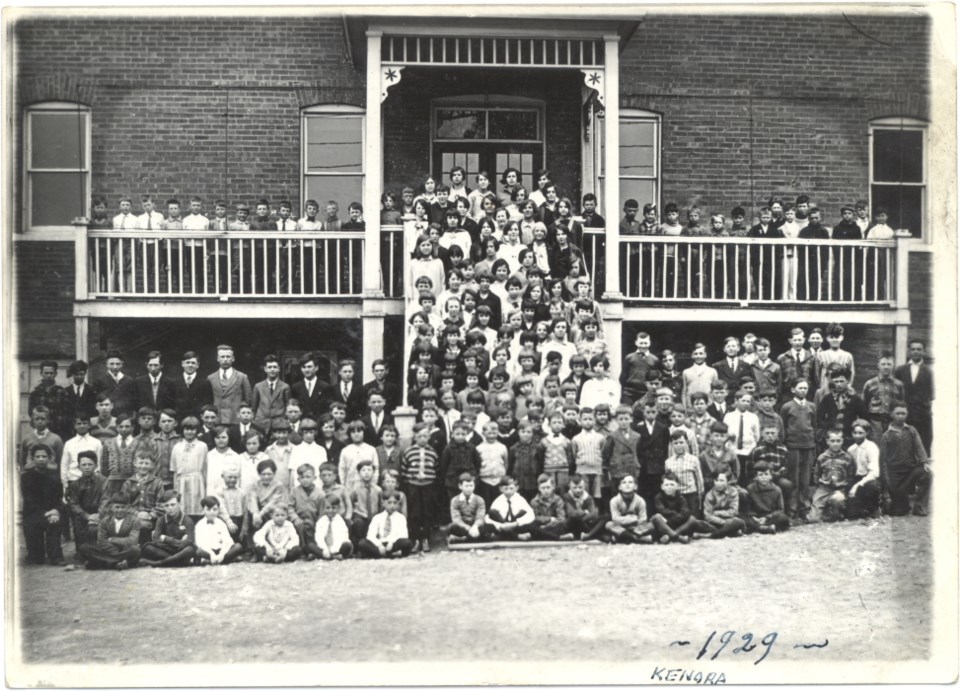WAUZHUSHK ONIGUM — Cadaver dogs searching the site of the former St. Mary's residential school in Kenora uncovered 22 "alerts," which could indicate historical human remains.
Wauzhushk Onigum Nation issued an announcement on Monday, following a three-day search of the grounds that was carried out in August.
Earlier this year, the community released a report that said up to 170 anomalies had been identified during previous search efforts, which included ground penetrating radar, light detection and ranging, archaeological assessment, and photogrammetry.
The 22 alerts from the dogs are in addition to those previously identified anomalies.
Nineteen of the 22 alerts overlapped with areas identified by survivors as potential burial sites.
The Kaatagoging Survivors Group has been working since May 2022 to investigate possible unmarked graves at the site of the school, which opened in 1897 and closed in 1972.
The human remains detection dogs are trained to detect remains that could be 100 years or older, and buried 10 or more feet underground. The dogs are used to cover more space faster, and access areas where technology like ground penetrating radar can't be used.
Wauzhushk Onigum Chief Chris Skead issued a statement addressed to residential school survivors.
Today, I honour you for standing firm, for sharing, for guiding, for showing us. It is your testimony, your strength, your guidance that will continue to move us forward”, Skead said.
Greg Rickford, the province's minister of Indigenous affairs and the MPP for Kenora-Rainy River, issued a statement Monday afternoon.
The update from Wauzhushk Onigum Nation brings us one step closer to unlocking the collective truth of what happened at the former St. Mary’s Indian Residential School. We remain committed to supporting First Nations partners at Wauzhushk Onigum Nation as they continue their work to identify, investigate, and commemorate," Rickford said.
"As the Member of Provincial Parliament for Kenora Rainy-River and Ontario’s Minister of Indigenous Affairs, I stand with Wauzhushk Onigum Nation, as well as Treaty 3 partners. We understand that the result of second phase of this search brings up intergenerational trauma for many, but we also recognize that the work being done is pivotal as we strive to achieve meaningful reconciliation.
"We will continue to support the community of Wauzhusk Onigum in every way that we can. This includes culturally appropriate mental health supports, as partners continue this incredibly difficult work."
